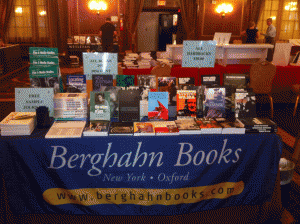 Although we’ve been in the midst of several heat waves here in New York City (if I hear the weatherman use the word “sweltering” one more time, I might cry!), I’m already starting to think about fall. In between dreaming of cozy sweaters and pumpkin pie, I’m hard at work coordinating our attendance at half a dozen academic conferences in some of our most important fields. A fan of checklists and packing, this is one of my favorite responsibilities. However, it can certainly also get a bit overwhelming making sure every part of the process gets taken care of while maintaining all of the different deadlines for each event. Continue reading “Exhibitor Tables at Academic Conferences in Theory and Practice”
Although we’ve been in the midst of several heat waves here in New York City (if I hear the weatherman use the word “sweltering” one more time, I might cry!), I’m already starting to think about fall. In between dreaming of cozy sweaters and pumpkin pie, I’m hard at work coordinating our attendance at half a dozen academic conferences in some of our most important fields. A fan of checklists and packing, this is one of my favorite responsibilities. However, it can certainly also get a bit overwhelming making sure every part of the process gets taken care of while maintaining all of the different deadlines for each event. Continue reading “Exhibitor Tables at Academic Conferences in Theory and Practice”
Tag: books
Hot Off the Presses- New Book Releases
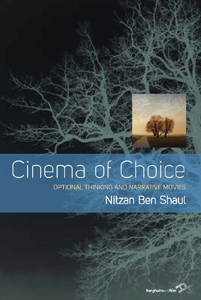 New in print from Berghahn:
New in print from Berghahn:
After The History of Sexuality: German Genealogies with and beyond Foucault, edited by Scott Spector, Helmut Puff, and Dagmar Herzog
Cinema of Choice: Optional Thinking and Narrative Movies, by Nitzan Ben Shaul
Hitler’s Volksgemeinschaft and the Dynamics of Racial Exclusion: Violence against Jews in Provincial Germany, 1919-1939, by Michael Wildt, translated from German by Bernard Heise
Sharing the Sacra: The Politics and Pragmatics of Intercommunal Relations around Holy Places, edited by Glenn Bowman
On the Evening News, the Galapagos Islands, and the Purpose of the Academy
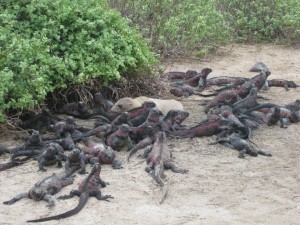 A post by Journals Marketing Manager Young Lee.
A post by Journals Marketing Manager Young Lee.
Whenever I watch the news these days, I know I’m in for a depressing half-hour, especially in New York, where crimes big and small seem to happen nonstop. Whether it’s a subway groper, a child falling out of a seventh story window, or the violence in Syria, I am starting to understand that no news really is the only good news.
This steady stream of bad news makes me wish for a Garden of Eden on this world, a place that’s a little more innocent, and I’m reminded of a trip I took last December to the Galapagos Islands, famous for their role in the inception of Darwin’s theory of evolution. What struck me most about the islands was that, with wildlife galore and few predators, all the animals seemed to coexist so peacefully. Sea lions casually rested their heads on iguanas and birds never worried about their eggs being eaten. Tropical flamingos and penguins lived side-by-side. It was the oddest thing I had ever seen and it was inspiring. Continue reading “On the Evening News, the Galapagos Islands, and the Purpose of the Academy”
Happy Bastille Day- A Brief History of the Holiday and French Revolution Resources from Berghahn
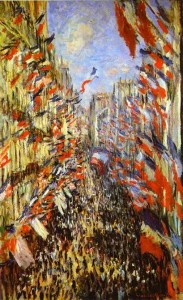 Most national days celebrate about what you would expect a national day to celebrate. Some, like the national days of the United States, Albania, and Haiti mark the signing of a declaration of independence from a colonial power. Other countries, like much of Africa, choose to remember the day the colonial power actually left. Countries like Germany and Italy celebrate unification. Others are a little quirkier, like Austria which celebrates its declaration of neutrality and Luxembourg which honors the Grand Duke’s birthday. A handful of countries such as the United Kingdom and Denmark have no national holiday. But few countries can top France for the sheer coolness of their national day which commemorates the day an angry mob stormed a prison. Continue reading “Happy Bastille Day- A Brief History of the Holiday and French Revolution Resources from Berghahn”
Most national days celebrate about what you would expect a national day to celebrate. Some, like the national days of the United States, Albania, and Haiti mark the signing of a declaration of independence from a colonial power. Other countries, like much of Africa, choose to remember the day the colonial power actually left. Countries like Germany and Italy celebrate unification. Others are a little quirkier, like Austria which celebrates its declaration of neutrality and Luxembourg which honors the Grand Duke’s birthday. A handful of countries such as the United Kingdom and Denmark have no national holiday. But few countries can top France for the sheer coolness of their national day which commemorates the day an angry mob stormed a prison. Continue reading “Happy Bastille Day- A Brief History of the Holiday and French Revolution Resources from Berghahn”
An Excerpt from Fortune and the Cursed: The Sliding Scale of Time in Mongolian Divination
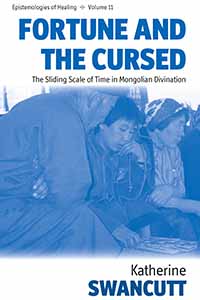 Note: Berghahn recently published Katherine Swancutt’s Fortune and the Cursed: The Sliding Scale of Time in Mongolian Divination, an ethnographic study of the world of Buryat Mongol divination. An excerpt from the book follows a note from the author which places it in the context of her larger argument.
Note: Berghahn recently published Katherine Swancutt’s Fortune and the Cursed: The Sliding Scale of Time in Mongolian Divination, an ethnographic study of the world of Buryat Mongol divination. An excerpt from the book follows a note from the author which places it in the context of her larger argument.
It’s common knowledge that, when under duress, many people turn to religion. Yet the human penchant for inventing new magical practices during this ‘turn to religion’ is rarely revealed.
When I first went to Mongolia, I wanted to uncover how a shamanic cosmology comes to be reinvented over time. My plan was to document the shamanic practices – and especially the divinations (aka ‘fortune-tellings’) – undertaken by Buryat Mongols at the northeastern fringes of the country. These shamans manage everything from major health and business crises to everyday fluctuations in a person’s fortune, which, I learned, is not just a kind of luck-filled prosperity that can rise or fall dramatically. Fortune is also a driving force behind Buryat innovation-making. Continue reading “An Excerpt from Fortune and the Cursed: The Sliding Scale of Time in Mongolian Divination”
Interview with the Editor- Gemma Blackshaw, Co-Editor of Journeys into Madness: Mapping Mental Illness in the Austro-Hungarian Empire
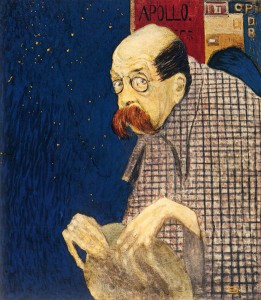 Gemma Blackshaw, along with Sabine Wieber, is one of the editors of Journeys into Madness: Mapping Mental Illness in the Austro-Hungarian Empire. In her own contribution to the volume, she discusses the work and life of Viennese author and poet and Peter Altenberg. Here, she answers questions about her research and herself.
Gemma Blackshaw, along with Sabine Wieber, is one of the editors of Journeys into Madness: Mapping Mental Illness in the Austro-Hungarian Empire. In her own contribution to the volume, she discusses the work and life of Viennese author and poet and Peter Altenberg. Here, she answers questions about her research and herself.
1. What drew you to Peter Altenberg as a topic?
A caricature of Altenberg was chosen as the poster image for the Madness & Modernity exhibition I curated with Leslie Topp and Sabine Wieber, which looked at the relationship between mental illness and the visual arts in Vienna circa 1900 (Wellcome Collection, London and Wien Museum, Vienna, 2009-10). It was a last-minute addition to the exhibition, gratefully received from the Neue Galerie Museum for Austrian and German Art in New York, and I had little time to research its history. I touched upon Altenberg’s own experience of what was termed ‘nervous disorder’ in the accompanying catalogue in an essay on the artist Oskar Kokoschka, who painted Altenberg’s portrait in 1909, and made a mental note to follow up what seemed to me to be an intriguing set of questions: was Altenberg as ‘mad’ as he appeared in the caricature; did an answer to that question even matter; what were the circumstances of his being institutionalised; what was the value and the differences in being represented, and representing yourself, as ‘mad’? These questions formed the starting point of a long research journey which became so compelling a trail that I produced not only this essay but also a documentary film collaboration with artist and filmmaker David Bickerstaff titled Altenberg: The Little Pocket Mirror. Continue reading “Interview with the Editor- Gemma Blackshaw, Co-Editor of Journeys into Madness: Mapping Mental Illness in the Austro-Hungarian Empire”
Hot Off the Presses- New Book Releases
European Foundations of the Welfare State, by Franz-Xavier Kaufmann, translated by John Veit-Wilson, foreword by Anthony B. Atkinson
Fortune and the Cursed, the Sliding Scale of Time in Mongolian Divination, by Katherine Swancutt
Investigating Srebrenica: Institutions, Facts, Responsibilities, edited by Isabelle Delpla, Xavier Bougarel, and Jean-Louis Fourn
Journeys into Madness: Mapping Mental Illness in the Austro-Hungarian Empire, edited by Gemma Blackshaw and Sabine Wieber
Learning from the Children: Childhood, Identity and Culture in a Changing World, edited by Jacqueline Waldren and Ignacy-Marek Kaminski
A Lover’s Quarrel with the Past: Romance, Representation, Reading, by Ranjan Ghosh
The Making of the Pentecostal Melodrama: Religion, Gender and Media in Kinshasa, by Katrien Pype
Ordinary Lives and Grand Schemes: An Anthropology of Everyday Religion, edited by Samuli Schielke and Liza Debevec
The Politics of Educational Reform in the Middle East: Self and Other in Textbooks and Curricula, edited by Samira Alayan and Achim Rohde, and Sarhan Dhouib
Revisiting Feminist Approaches to Art Therapy, edited by Susan Hogan
Advice from the Editors: Turning Your Dissertation into a Manuscript
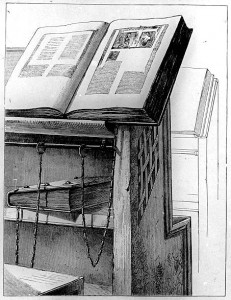 A very good friend of mine will defend her dissertation next month. The progress of said dissertation has been a topic of many conversations, and I’ve been reminded of the long haul it is to write a book-length piece of scholarship: the work, the anxiety, the lulls in motivation followed by reinvigoration, meetings with advisors, revisions, time, energy, inspiration, loss of sleep, and sheer sweat. She even said at one point, “I wouldn’t wish this on anyone.” And I am reminded of this most keenly when a prospective author submits a proposal that is clearly an unrevised dissertation and I must ask whether or not the text has been revised into a book. Whether the dissertation process for this author is part of the more recent or more distant past, a first-time author is not always ready to learn that the book publishing process (from manuscript to printed tome) is approximately one and a half to two years. Don’t put away your long-distance running shoes—ever. You will always need them as a scholar and a writer. And of the long publishing process, which goes much more quickly than it seems it will at the outset, where do you begin with the dissertation? Continue reading “Advice from the Editors: Turning Your Dissertation into a Manuscript”
A very good friend of mine will defend her dissertation next month. The progress of said dissertation has been a topic of many conversations, and I’ve been reminded of the long haul it is to write a book-length piece of scholarship: the work, the anxiety, the lulls in motivation followed by reinvigoration, meetings with advisors, revisions, time, energy, inspiration, loss of sleep, and sheer sweat. She even said at one point, “I wouldn’t wish this on anyone.” And I am reminded of this most keenly when a prospective author submits a proposal that is clearly an unrevised dissertation and I must ask whether or not the text has been revised into a book. Whether the dissertation process for this author is part of the more recent or more distant past, a first-time author is not always ready to learn that the book publishing process (from manuscript to printed tome) is approximately one and a half to two years. Don’t put away your long-distance running shoes—ever. You will always need them as a scholar and a writer. And of the long publishing process, which goes much more quickly than it seems it will at the outset, where do you begin with the dissertation? Continue reading “Advice from the Editors: Turning Your Dissertation into a Manuscript”
Win a Copy of Michael Haneke’s Cinema: The Ethics of the Image
 As the Berghahn Books blog wraps up it’s third week of existence, we’re excited to announce our first contest. To be entered to win a copy of Michael Haneke’s Cinema: The Ethics of the Image by Catherine Wheatley, follow Berghahn Books on Facebook by 5 p.m. EST Monday. We’ll select a winner at random from our new followers.
As the Berghahn Books blog wraps up it’s third week of existence, we’re excited to announce our first contest. To be entered to win a copy of Michael Haneke’s Cinema: The Ethics of the Image by Catherine Wheatley, follow Berghahn Books on Facebook by 5 p.m. EST Monday. We’ll select a winner at random from our new followers.
The first English-language analysis of Michael Haneke’s work, Michael Haneke’s Cinema offers a critical analysis of the Austrian director’s first eight feature films. Drawing on the moral philosophy of Immanuel Kant and Stanley Cavell, Catherine Wheatley, introduces a new way of marrying film and moral philosophy, which explicitly examines the ethics of the film viewing experience. This critically acclaimed work was shortlisted for the Best Moving Image Book by the And/Or Book Awards and the 2009 Willy Haas and was the Sight and Sound Magazine Book of the Month in September, 2009.

